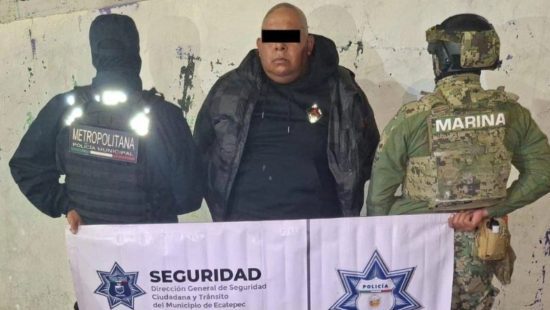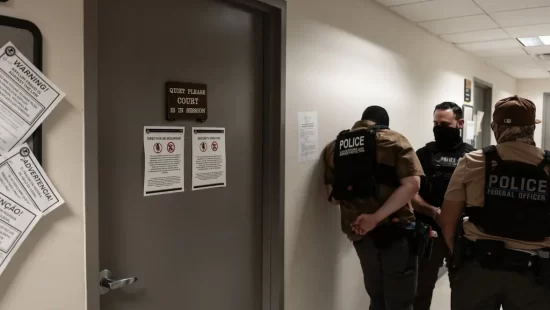ICE officers detained and deported Josué Aguilar Valle, a 27-year-old restaurant manager from Honduras, to his home country in May 2025 after he attempted to adjust his status legally through a marriage-based petition with his US citizen wife. He and his wife shared their story with Human Rights Watch.
Aguilar said he first arrived in the United States as a child around the age of 15 to reunite with his parents who were already there. He attended high school, excelled as a soccer player, and earned a scholarship to St. Charles College in Missouri. He applied for asylum and received work authorization but, after losing his asylum case, received a final order of removal and his work authorization expired. He appealed the removal order, but the case was dismissed. Aguilar told Human Rights Watch he never fully understood what this meant.
Aguilar remained in the US without documents, eventually marrying Jessica, a US citizen, in 2022 and filing an I-130 petition to have their relationship recognized as a first step toward adjusting his immigration status based on his marriage. The couple also had a child in 2023.
During an interview at the United States Citizenship and Immigration Services (USCIS) office in Kendall, Florida, on April 8, 2025, their marriage was officially recognized and the I-130 approved. But moments after receiving this approval, immigration enforcement officers removed Aguilar from the building and put him into deportation proceedings because of the previous final order of removal.
“We wanted to do things the right way,” he told Human Rights Watch. “But it all basically [felt like] a trap so they could arrest me for deportation.” He had no criminal record and had lived in the United States for over a decade.
What followed was a cycle of transfers between five detention facilities, two in Florida—Krome’s very cold cell for processing and then BTC—after which he was transferred to Texas, first to Karnes County Processing Center, then to La Salle Regional Detention Center in Encinal, and finally to South Texas Immigration Processing Center in Pearsall, from where he was deported. The conditions at all the facilities were “terrible,” he said. Aguilar described the processing cells as very cold with bright lights that were kept on all the time, and men sleeping on concrete floors. “I thought I was going to experience hypothermia,” he said.
In La Salle, he was housed with 50 other men in a cramped cell with very poor food. He recounted one instance where a cellmate’s untreated spider bite began undergoing necrosis, or localized death of tissue. Despite cellmates desperately asking officers to get him medical care, it took four days for a doctor to see him. “Everything about that place was rotten,” Aguilar said.
His wife struggled to track his location as he was repeatedly moved, often being told he had been moved just after she filed a request to visit. “Every time I tried to visit him, they moved him,” she said. “It’s like they’re trying to wear families down.” Despite Aguilar’s lawyer submitting a stay of removal and a motion to reopen his case while he was detained, ICE refused to halt the deportation. Aguilar was ultimately deported to Honduras on May 7, and from there spoke to Human Rights Watch. His wife joined him in Honduras and left their child behind with their grandparents temporarily while the couple tries to find a home and jobs.
Reflecting on his experience once he had been deported, Aguilar said:
For me the best country in the world is the United States. I have spent half of my life in the United States, and I feel it’s my country. I feel that because that is where I have studied, where I have worked, where I have learned to be independent.
Aside from being separated from your family, the United States is now treating you in a way that’s inhumane… I’ve never seen myself in a position of being in prison… And it’s really horrible.
(Story published by Human Rights Watch)








